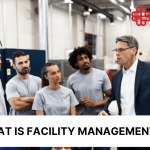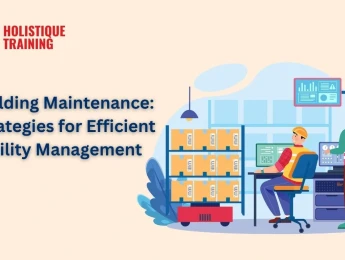Facilities management is an industry that thrives on operational excellence. Excellence opens up endless opportunities for an organisation to improve and succeed in different areas and see more consistent and satisfactory results. Excellence covers all the factors of the organisation, therefore opening up the pathway for improvement in all areas.
When it comes to managing excellence, it is essential to understand its primary influences. Quality and design are some of the most crucial aspects. These define the quality of the organisation's services, and design highlights the planning and strategies contributing to quality. The organisation can utilise various equipment and techniques to develop its quality further to meet its overall goals and objectives.
Another crucial factor of excellence is performance monitoring. Performance monitoring will give the organisation an in-depth understanding of how each specific task is being conducted. Analysing performance data will allow for full comprehension of current productivity and how it is aligned with goals. If performance is lacking, facilities management professionals can reassess and implement strategies to aid in increasing performance.
Upon completion of this course, participants will be able to:
- Understand the importance of managing excellence within facilities management.
- Regularly monitor and measure employee and function performance to highlight areas lacking productivity.
- Appreciate the necessity of effective leadership and management when achieving excellence within facilities management.
- Evaluate the organisation’s access to tools and equipment to ensure all teams and individuals have what they need to achieve excellence.
- Guarantee all areas of facilities management are fully compliant with industry standards and national laws.
- Establish action plans detailing goals and objectives, focusing on maintaining quality and sustainability.
This course is designed for anyone within facilities management who is responsible for maintaining excellence throughout. It would be most beneficial for:
- Operations Managers
- Facilities Managers
- Risk Analysts
- Financial Advisors
- Quality and Design Managers
- Procurement Officers
- Contractors and Sub-contractors
- HSE Officers
This course uses a variety of adult learning styles to aid full understanding and comprehension. Participants will review case studies of established organisations with varying levels of excellence to highlight key factors that influence performance and methods that may lead to further improvement.
They will be provided with all the necessary tools to participate in various learning methods, including presentations, group discussions, video materials, and practical activities. This combination of activities will ensure the participants develop a full understanding of the taught content and related practical skills.
Day 5 of each course is reserved for a Q&A session, which may occur off-site. For 10-day courses, this also applies to day 10
Section 1: Introduction to Excellence
- Defining excellence and its necessity within facilities management and the wider organisation.
- Recognising the consequences of poor excellence within facilities management.
- What internal and external factors can influence facilities management excellence?
- Typical features of excellence that promote organisational success – strategic thinking, effective leadership, building value and performance measurement.
Section 2: Maintaining Quality
- Guaranteeing maximum quality within every task or process.
- The importance of innovative thinking, design, and improvement.
- Creating quality design plans and detailing overall goals, objectives, and expectations.
- Ensuring quality designs and functions are meeting industry standards and national laws.
- Managing effective teams and encouraging open and concise communication.
- Providing guidance and training when necessary.
Section 3: Quality Management Equipment and Systems
- Maintaining high standards throughout procurement processes.
- Developing customer-supplier relationships.
- Carrying out failure mode, effect, and criticality analysis (FMECA).
- Controlling production and processes using statistical process control tools (SPC).
- Managing contracts with all necessary parties to ensure all responsibilities are being fulfilled – contractors and suppliers.
Section 4: Performance Monitoring
- Utilising various methods of measuring and monitoring performance to ensure maximum productivity and quality.
- Monitoring and creating reports in different areas of facilities management – operational, financial, and quality delivery.
- What features contribute to an effective report?
- Analysing performance data and strategising methods to improve future performance.
Section 5: Organisational Governance
- The vitality of maintaining organisational governance.
- Guaranteeing legal and industry standards throughout all processes.
- Exploring various techniques to aid in continuous improvement.
- Understanding how organisational governance and facilities management excellence are intertwined.
- Providing all wanted information to necessary parties.
Upon successful completion of this training course, delegates will be awarded a Holistique Training Certificate of Completion. For those who attend and complete the online training course, a Holistique Training e-Certificate will be provided.
Holistique Training Certificates are accredited by the British Assessment Council (BAC) and The CPD Certification Service (CPD), and are certified under ISO 9001, ISO 21001, and ISO 29993 standards.
CPD credits for this course are granted by our Certificates and will be reflected on the Holistique Training Certificate of Completion. In accordance with the standards of The CPD Certification Service, one CPD credit is awarded per hour of course attendance. A maximum of 50 CPD credits can be claimed for any single course we currently offer.
- Course Code IND21-104
- Course Format Classroom, Online,
- Duration 5 days














